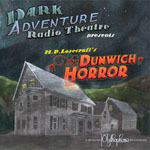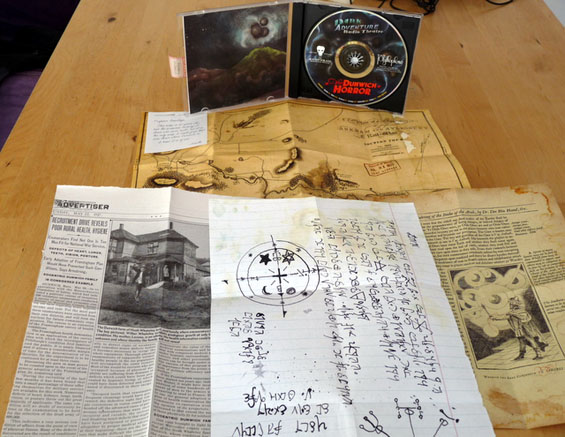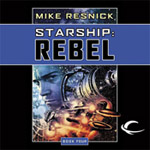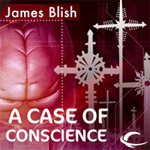
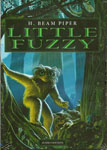
 Little Fuzzy
Little Fuzzy
By H. Beam Piper; Read by Brian Holsopple
5 CDs – 5 Hours 53 Minutes [UNABRIDGED]
Publisher: Audio Realms
Published: November 2006
ISBN: 9781897304617
Themes: / Science Fiction / Planetary Colonization / Sapience / Law / Mining /
The chartered Zarathustra Company had it all their way. Their charter was for a Class III uninhabited planet, which Zarathustra was, and it meant they owned the planet lock stock and barrel. They exploited it, developed it, and reaped the huge profits from it without interference from the Colonial Government. Then Jack Holloway, a sunstone prospector, appeared on the scene with his family of Fuzzies and the passionate conviction that they were not cute animals but little people…
Little Fuzzy is a novel cherished by a smallish but passionate group of admirers. They seem to love it for its portrayal of the fuzzies themselves. It may be a “furry fandom” book too (but I’m a little afraid to do the research on that). I myself hadn’t heard of the novel, or much of the author, H. Beam Piper, until Little Fuzzy and pretty much everything else written by H. Beam Piper began being posted to Project Gutenberg.
My initial sense of the book was that Little Fuzzy would act as a lens through which historical colonizations could be examined – something like what was done in Ursula K. Le Guin’s The Word For World Is Forest. But it didn’t work out that way. Piper was not trying to explore historical events as much as what we mean by the word “sapience.” The verdict on the Fuzzies is obvious from the begining, but curiously enough the Fuzzies are still somewhat treated like children even by their human champions. Perhaps this was the only way Piper could easily characterize the right minded human’s benevolence? I wish he were alive so I could ask him about this. For the infantilization of the Fuzzies parallels some attitudes towards the aboriginal peoples facing colonization here on Earth. But like I said, the general focus is on a philosophical examination of the concept of sapience – not colonization.
After some initial trepidation I found myself hanging on the every word of this WONDERFUL audiobook. H. Beam Piper is an amazing storyteller. His homespun folksiness allows him to make grammatically wrong choices, but none that ever misconstrues his intended meaning. For example:
“He dropped into a chair and lit a cigarette. It tasted badly, and after a few puffs he crushed it out.”
I think Grammar Girl would have a problem with this noting that ‘cigarettes don’t have tongues so they can’t taste well or badly’ – despite this, I think Piper’s Little Fuzzy is some of the most transparent and plainspoken prose that I’ve ever read. Narrator Brian Holsopple doesn’t have a vast range with which to pitch his voice, but he subtly manages to give accent and attitude to every character. His voicing of the entire fuzzy vocabulary (just the one word: “yeek”) is nearly as broad – giving curiosity, understanding, determination and suggestion to every yeek in the book. There was a small editing gaffe on disc 3, a repeated line, and another similar one on disc 5 but otherwise the production was perfect.
Posted by Jesse Willis
